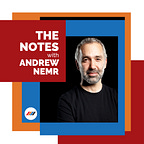I find myself exploring rest a lot here because it matters.
I grew up in a culture that was performance oriented, to the exclusion of the person. I burnt out attempting to conform to the values and organization of that culture. It didn’t really matter who you were, you could be disregarded or discarded. The way to over come that threat was to become the “best.” But “the best” was a moving target.
It took me years of heartache to realize that very few people could define what the best was, and I had given up my own definition to others. My burnout was the opportunity I needed to interrogate my personal definition – what I wanted my life to be organized around, and how to do that.
The 23rd Psalm had something to say about this.
The formation of a spirit is a kind of compounding thing. It comes from training – the process of shaping and reshaping. In his book on praying, Richard Foster proposes the idea that if we haven’t practiced a particular kind of prayer in the small things, it will be difficult for us to know what to do when bigger things are on the line. The bigger things being the times when we may more clearly realize we need someone else’s help…even God’s.
Small things first. Then, big things. This echoes the idea of Jesus when he says, “He that is faithful in that which is least is faithful also in much: and he that is unjust in the least is unjust also in much.” (Luke 16:10 KJV). Small things matter.
Let me propose to you then, that the one who has found a way to reconcile their desires to something beyond their desires will experience rest differently than the one whose life is wrapped up in the fulfillment of their desires.
It makes sense then that Psalm 23 introduces the relationship that governs the experience of rest first, that of the good shepherd. This is what the individual’s desires are being reconciled to. It then describes what happens to the desires – they are fulfilled in a life without lack. Well, what happens next?
“He makes me lie down in green pastures…”
Rest.
The experience of rest that is described in the second line of Psalm 23 is not only the ceasing of work. It is that, but is also more than that. It is the kind of rest that comes when there is no pull on the heart of the person. Consider this:
A sheep that is hungry, if found in a green pasture, will likely be found eating, not lying down.
The kind of rest we might envision is the kind of rest we experience when we are full. Full of whatever we might have been needing. Full from food and drink. Full from friendship. Full from shelter and clothing. Full from a loving family. Full from completing a task. Full from completing a journey. Full.
This kind of fullness releases us from having to be primed for action. Particularly action that is poised to fulfill our desires. We can stop. We can rest. Even when surrounded by temptations of fulfillment – food, connection, protection – none of these evil in and of themselves – we need not be pulled by them, organized around them, or eventually consumed by them.
Let’s return to the idea that formation happens in a kind of order – even if it is cyclical. Who we follow leads to a particular experience of life. Following the good shepherd leads to a life without lack. That life plays itself out in other areas. A life without lack transforms our ability to rest.
Wait, I missed something important.
You may have missed it, too. The writer of Psalm 23 doubles down on the shepherd idea in this second line. They don’t say, “I have this life without lack, now I can chill.” They say, in my experience of this life, I am led to chill by my shepherd – and chill in the middle of a field of plenty.
There is an aspect of teaching in the experience of rest that is important to acknowledge. So immersed has humanity been in the idea that we must do things to survive, that a ceasing from that doing is comparable to abdicating our responsibility. How could you rest when we don’t have enough to survive? How could you rest when the world is crumbling around you? How could you really rest when you have to act for anything to happen?
The idea of rest that is proposed here is profound, counter intuitive for most, and most clearly expressed in Jesus Christ’s invitation to His easy yoke. In this invitation, Jesus says something like, “Come and learn from me how to have a life without a heavy burden.”
How do we get there?
The things that happen in the process of teaching are personal to each individual. After all, we all have different things that we need to learn to move from where we are and into a greater experience of the kind of life that is being proposed here. For me, it was a complete renovation of my relationship to achievement. For someone else, it might be an experience of stopping work without guilt. Still, for others it might be a lifting of the responsibility of the world from their shoulders.
These experiences have a greater possibility of occurring when we begin to engage in the process of our formation consciously. In this process we can interrogate who we have been shepherded by. We can consider the amount of trust we have with the current shepherd we’ve given our lives to. We can purposefully engage with conversations and activities for the sake of the person we are aiming to become.
Instead of getting bounced around by the drama of life, the drama of life can be the natural outcome of attempting to live a particular life. If that life is worthwhile as a goal, so too will be the drama. Who knows? We might be so inspired as to willingly bring the drama upon ourselves because the alternative would be the abdication of our vision of the life we could have.
That life is one in which we are with someone who cares deeply for our person (a good shepherd); one in which we don’t experience lack (thanks to reconciled wants); one in which we are led to lay down and experience rest (even in the midst of plenty).
And if you can believe it, there is more to come.










